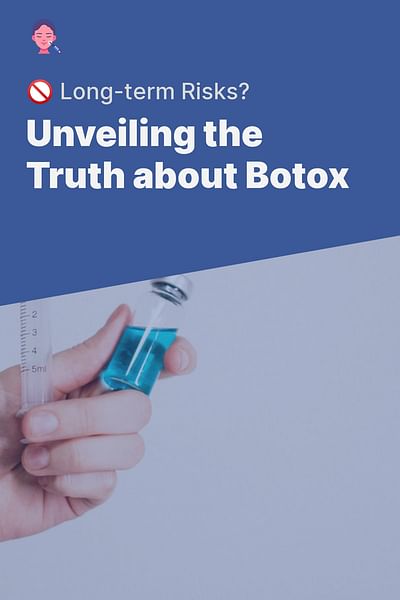Dr. Ethan James is a renowned plastic surgeon with a focus on facial rejuvenation using Botox and other injectables. With over 20 years of experience, Dr. James has developed a reputation for his meticulous attention to detail and natural-looking results. He is dedicated to educating both his patients and fellow professionals on the latest advancements in Botox treatments.
As a plastic surgeon with over 20 years of experience in facial rejuvenation using Botox and other injectables, I understand the concerns that many people have about the safety of Botox treatments. While Botox is generally considered safe when administered by a qualified professional, it is important to understand the potential risks and side effects associated with this treatment.
First and foremost, it is important to note that Botox is a prescription medication that should only be administered by a qualified medical professional. When administered properly, Botox is generally safe and well-tolerated. However, like any medication, Botox does carry some risks and potential side effects.
The most common side effects of Botox include temporary bruising, swelling, and redness at the injection site. These side effects typically resolve on their own within a few days. In rare cases, patients may experience more serious side effects such as difficulty breathing, swallowing, or speaking. If you experience any of these symptoms after receiving Botox, it is important to seek medical attention immediately.
There has been some concern in the past about the long-term effects of Botox treatments, particularly with regard to the potential for muscle atrophy or other complications. However, studies have shown that these risks are minimal when Botox is administered properly by a qualified professional. In fact, many patients who receive regular Botox treatments over a period of years report that their skin looks smoother and more youthful than it did before they began treatment.
That being said, it is important to understand that Botox is not a permanent solution to the signs of aging. The effects of Botox typically last for three to six months, after which time the treatment will need to be repeated in order to maintain the desired results. Additionally, there is some evidence to suggest that repeated Botox treatments may lead to a reduced response over time, meaning that higher doses may be required to achieve the same results.
In conclusion, while Botox is generally considered safe when administered by a qualified professional, it is important to understand the potential risks and side effects associated with this treatment. If you are considering Botox, be sure to discuss your concerns with a qualified medical professional and ask any questions you may have about the risks and benefits of this treatment.















